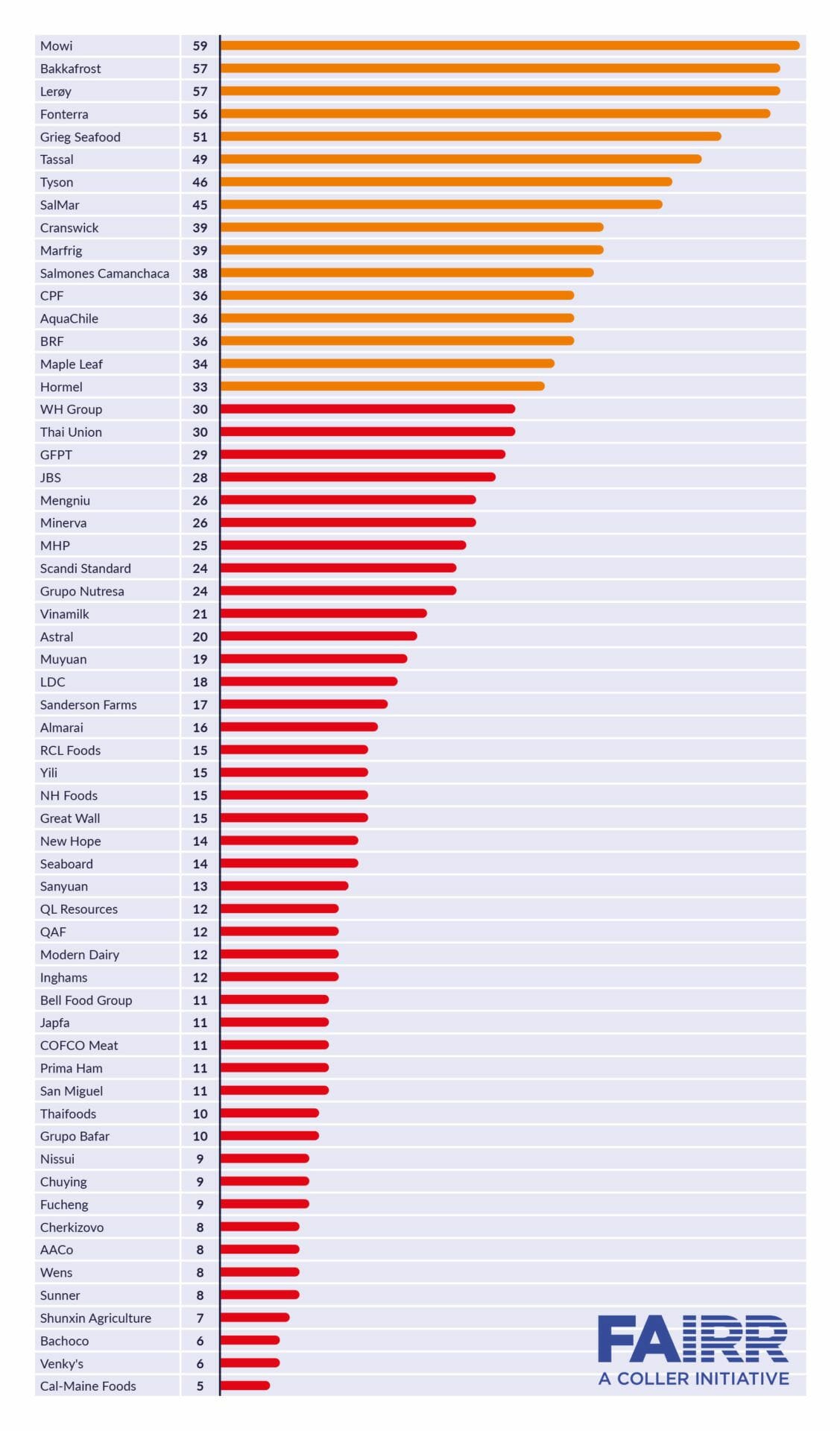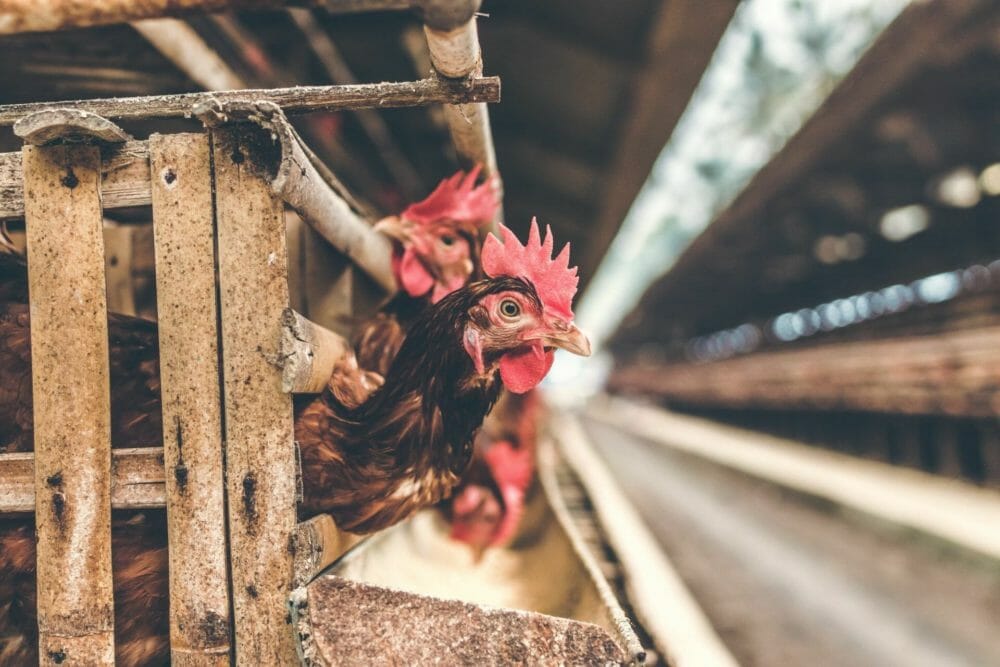Editor’s note: Article updated at 2:44 UTC to include statement from Cal-Maine Foods.
Many of the world’s largest food companies represent a ‘high pandemic risk’ due to practices such as ‘factory farming,’ concentrated animal feeding operations (CAFOs), and over-reliance on antibiotics, according to new research.
The 44 companies listed as ‘high pandemic risk’ by the study include global meat processing giants such as Brazil’s JBS and India’s Venky’s – both of which supply meat to fast food chain McDonalds – US egg producer Cal-Maine Foods, and major Chinese firms including Great Wall and Yili.
The research by the FAIRR Initiative, an investor network that seeks to raise awareness around environmental, social, and governance (ESG) issues, particularly focused on the animal products industry, looked at the world’s 60 largest meat, dairy, and fish companies. It scored them across several criteria that it deems “vital to preventing future zoonotic pandemics,” including animal welfare, antibiotic stewardship, biodiversity management, deforestation, food safety, and worker safety.
Meat processing and other animal protein sectors have been hit hard by the ongoing Covid-19 pandemic – and not just by severe supply chain disruptions. The coronavirus is suspected of having originated in a Chinese wet market (though this remains unproven) where live animals, including wildlife, were allegedly being butchered and sold for meat onsite.
Around the world, there is evidence to suggest that consumers are looking to decrease the amount of meat and other animal proteins in their diets in the wake of Covid-19. A recent study from the US National Cattlemen’s Beef Association and Oklahoma State University predicted that the US cattle industry will lose $13.6 billion as a result of the pandemic; while Goldman Sachs now puts livestock in the same bracket as oil when it comes to identifying the riskiest commodities for investors in the near future.
On the other hand, alt-proteins have seen a boost. Sales of plant-based meat analogs in the US were up 200% year-on-year in the third week of April, while NASDAQ-listed alt-protein producer Beyond Meat has seen its share price soar.

FAIRR, which claims to be supported by “institutional investors managing assets of over $20 trillion,” found that 73% of the companies it studied – collectively valued at over $220 billion – present a high pandemic risk in terms of “their inability to prevent the emergence of new zoonotic diseases.”
It warns investors that the meat industry is set to face increased scrutiny and stricter regulation which could include things like biosecurity training, heightened surveillance, and increased vaccination for animals and workers.
“Many of these protocols are incompatible with models such as CAFOs or factory farms given the pronounced risk of cross contamination,” the report states.
Jeremy Coller, founder of FAIRR and chief investment officer at private equity firm Coller Capital, said that “factory farming is both vulnerable to pandemics, and guilty of creating them.”
“To avoid causing the next pandemic, the meat industry must tackle lax safety standards for food and workers alike, closely confined animals, and overused antibiotics. This will disrupt a supply chain already cracking from fundamental land, water, and emissions constraints.”
Jeff Eller, a spokesperson for Cal-Maine Foods, said that the Jackson, Mississippi-based company’s mission is to be “the most sustainable producer and reliable supplier of consistent, high-quality fresh shell eggs and egg products in the [US]” and it will be publishing its 2019 sustainability report to outline its progress on this front later this month.
“We are proud of our efforts and advancements in recent years to reduce the energy and resource inputs for our egg production and to improve our stewardship of land, air, and water resources,” Eller said in a statement sent to AFN, adding that Cal-Maine seeks to “balance a range of topics including food safety and affordability, animal welfare, responsible management of land, air, and water, and ultimately a commitment to the communities in which we operate.”
“We believe we are taking all reasonable precautions in the management of our operations in response to the [Covid-19] outbreak. As this global health crisis continues to evolve, we are committed to taking the necessary steps to protect the health and safety of our employees, our customers, and other stakeholders,” he said.
Got a news tip? Email me at [email protected] or find me on Twitter @jacknwellis





